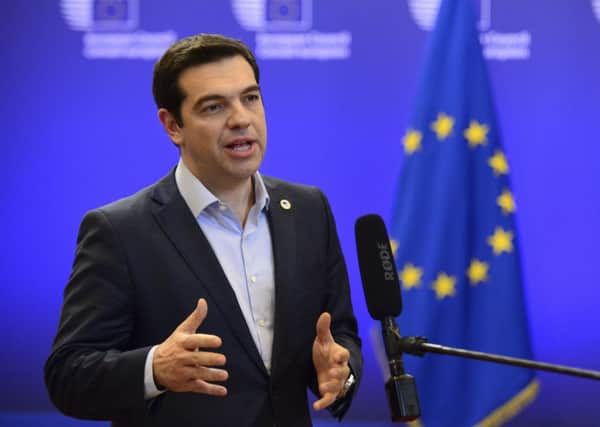Leaders: Grexit would be a failure | Yvette Cooper


After years of economic crisis, the decision of the Greek government to withhold scheduled payments until the end of this month appears to be more about political positioning than a lack of funds. The money, we are told, is available, but it will be paid when Greece is ready.
There may be a sense of the tail wagging the dog here, but no-one should imagine that Greece is in control. Even if this month’s payments go through, the extent of the remaining debt remains colossal and the economic viability of the country will continue to be perilous.
Advertisement
Hide AdAdvertisement
Hide AdThis is the first time a country has deferred on a debt repayment since the 1980s, and it is not a trick that can be pulled every month. But this month, it signals a heightened tension between Greece and its creditors. Greece does not want to be pushed around by other nations who are demanding reforms to ensure it is in a better position to meet its obligations in future. It is not difficult to see the impasse here. Germany – and others – can feel entitled to demand reforms because if Greece stays in the eurozone and chips away at the debt without making any significant changes, crisis-point will come round again. For the Greeks, it is about appropriate reforms which will ease austerity rather than further deepening it. The language of “humiliation” and “blackmail” is in the air.
Of the various scenarios that could be reached from this point, a Greek exit from the eurozone remains a strong possibility. Pressure on the government could trigger a snap election, or a referendum, regardless of soundings yesterday which tried to play down either of these eventualities.
A Greek exit is a crisis that cannot be viewed in isolation. As well as the problems in Greece, nations are also looking to the UK, anxious to know if the planned in/out referendum could bring two EU exits rather than just one. It is the kind of threat Europe has not faced for many years.
In the UK, we are wrapped up in our own referendum debate, which means we are inevitably distracted or isolated from the fact that every other nation is talking about the possible demise of Europe rather than whether or not to be part of it.
For all the clear problems and the acknowledged requirement for reform, the European Union is a success story. There is peace and relative harmony, and the economic clout of the union is formidable. A Greek exit would be a failure; a UK exit on top of that would put the whole concept of the union under unprecedented threat.
For all the rights and wrongs over Greek debt, there is a very delicate balance to be struck. At stake here is much more than just the future of one country.
Cooper could learn from Dugdale
THE arrival of Yvette Cooper in Scotland on her campaign to become leader of the UK Labour Party was timely, because if ever there was a starting point to examine where Labour has gone wrong and show a genuine desire to understand those problems, it is north of the Border. It’s an opportunity that should have been clear to all candidates.
It is unfortunate, then, that Ms Cooper was quick to reject suggestions that a Scottish Labour Party could be independent of London HQ. It would have been better to wait, and take a wider range of soundings, to get a clearer idea of frustrations in Scotland. She is right up to a point when she says it would be better for Labour to stay together, but that thinking comes from a UK perspective, fearing division. What she has not fully recognised is that a greater division has taken place already, bringing radical change to the political landscape in Scotland.
Advertisement
Hide AdAdvertisement
Hide AdWhen it comes to the issue of an independent party in Scotland, what is right for the party at UK level is not always best for the organisation north of the Border. Which, of course, is the very heart of this matter.
One of the most refreshing aspects of the Scottish Labour leadership campaign so far was Kezia Dugdale’s decision to call for European Union nationals living in Scotland to be given the vote at the EU referendum, in contrast to her party’s thinking south of the Border. Whoever wins in Scotland needs the ability to demonstrate that Scottish Labour has an identity which sets it apart from the organisation run from London. Without that distinction, Labour risks continued rejection in its traditional heartland.